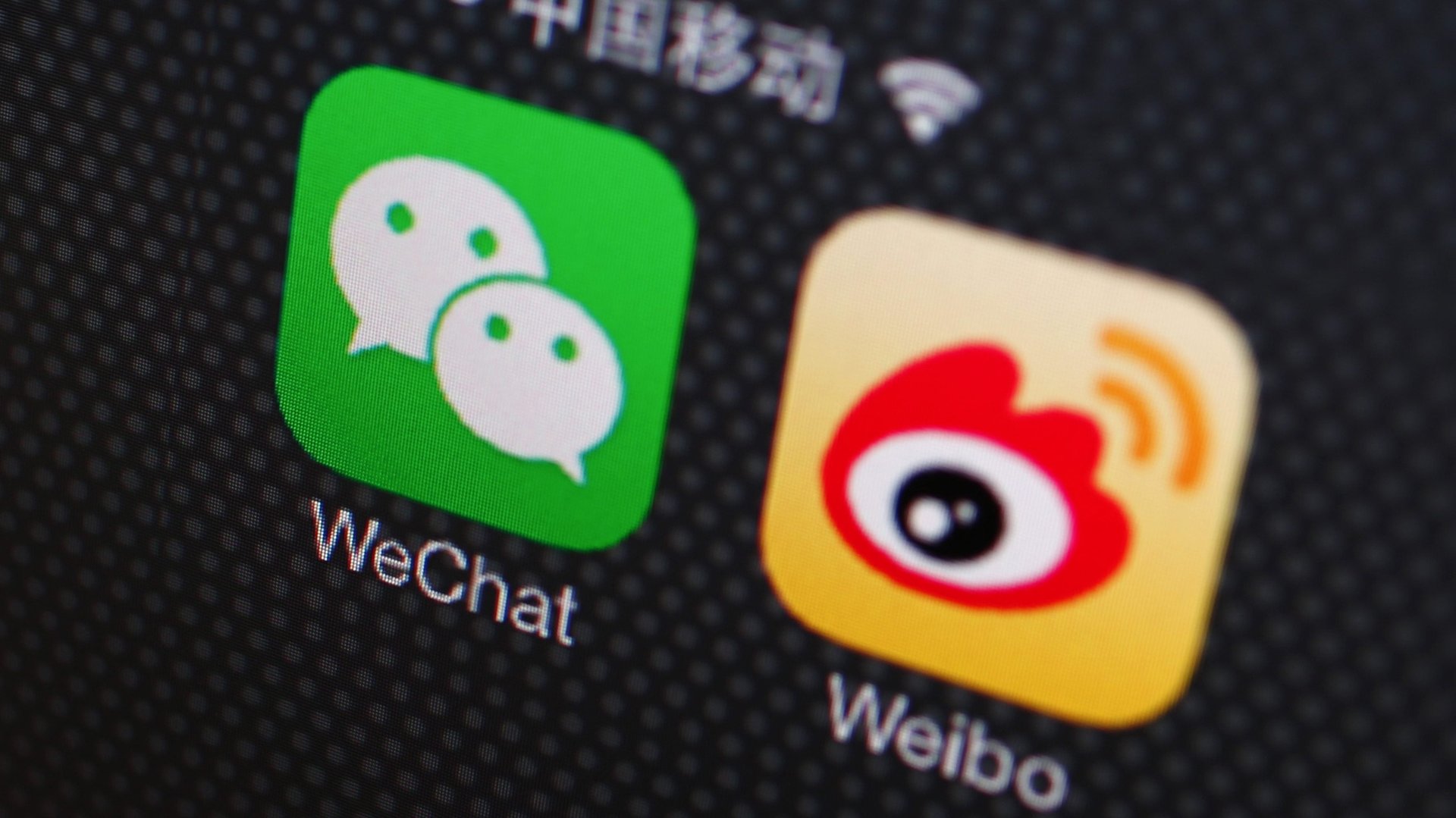Coronavirus spells trouble for online platforms like Weibo, despite user spike
From YouTube to Weibo, social media use is surging across Asia thanks to local outbreaks of coronavirus.


From YouTube to Weibo, social media use is surging across Asia thanks to local outbreaks of coronavirus.
As the virus now dubbed SARS-CoV-2 spreads, it has confined people in hard-hit areas to their homes. Throughout China, employees are working from home and students are listening to lecture livestreams. Outside of China, schools in both Vietnam and Japan have closed. From Hong Kong to Thailand to South Korea, businesses and schools are shutting down—and people, in turn, are logging on.
The surge in mobile usage began over the Lunar New Year holidays, with Chinese citizens spending 20% more time on their smartphones than the same period last year, according to Nomura analysts Jialong Shi and Thomas Shen. Using data on app usage and daily active users from QuestMobile, Nomura found that virtually every type of app, from messaging apps like WeChat to Weibo, China’s equivalent of Twitter, saw immediate spikes.
While people are isolated, smartphones offer a way to connect with friends, alleviate boredom, or find crucial information on the outbreak. Despite the Chinese government’s censors, Weibo saw usage grow by 31% as users flocked to the micro-blogging platform for a much-needed dose of human contact. China’s TikTok, Douyin, grew by 102% as bored teens went to cloud raves, created humorous videos about their isolation, and heard advice from doctors and medical staff. Video game companies like TenCent and NetEase saw an increase in playing times across its major titles.
Consumers throughout China are also turning to their smartphones for practical purposes, such as ordering groceries and food delivery. Alibaba’s online grocery platform Freshippo saw numbers double, and TenCent’s MissFresh grew by 61%.
But while people are spending more time online, it seems like they’re also trying to spend less money. Online shopping, especially for luxury items, hasn’t seen seen the same usage spike. Both Alibaba’s Taobao app and VipShop, both e-commerce apps, saw a decline in time spent on the app. There’s an irony here in usage falling on Taobao: The online auction app launched at the height of the SARS outbreak in 2003, and directly benefited from isolated users relying on the app to shop at the time.
At first glance, it seems like online platforms may be the industry that stands to benefit financially from the Covid-19 outbreak. Global stocks tumbled this week, experiencing their worst losses since the financial crisis as the virus impacted industries like airlines, tourism, tech, and more.
Unfortunately, it doesn’t appear that digital platforms are immune from the financial impacts of coronavirus. Although Weibo acknowledged the surge in users this week, it also revealed that its ad business has taken a hit.
“Despite a strong term, we are actively impacted from the budget cutback from advertisers whose businesses have been disrupted, following the coronavirus outbreak in China,” said Weibo Vice-President Fei Cao in an earnings call this week (Feb. 26).
Baidu, China’s search engine giant, warned investors on Friday (Feb.28) that its first quarter revenue could drop by as much as 13% as industries from travel to real estate slashed their advertising spending. “The coronavirus outbreak has undoubtedly impacted our economy,” Baidu Chief Executive Robin Li said in a call with analysts on Friday. “The near term-impact on our business has been negative.”